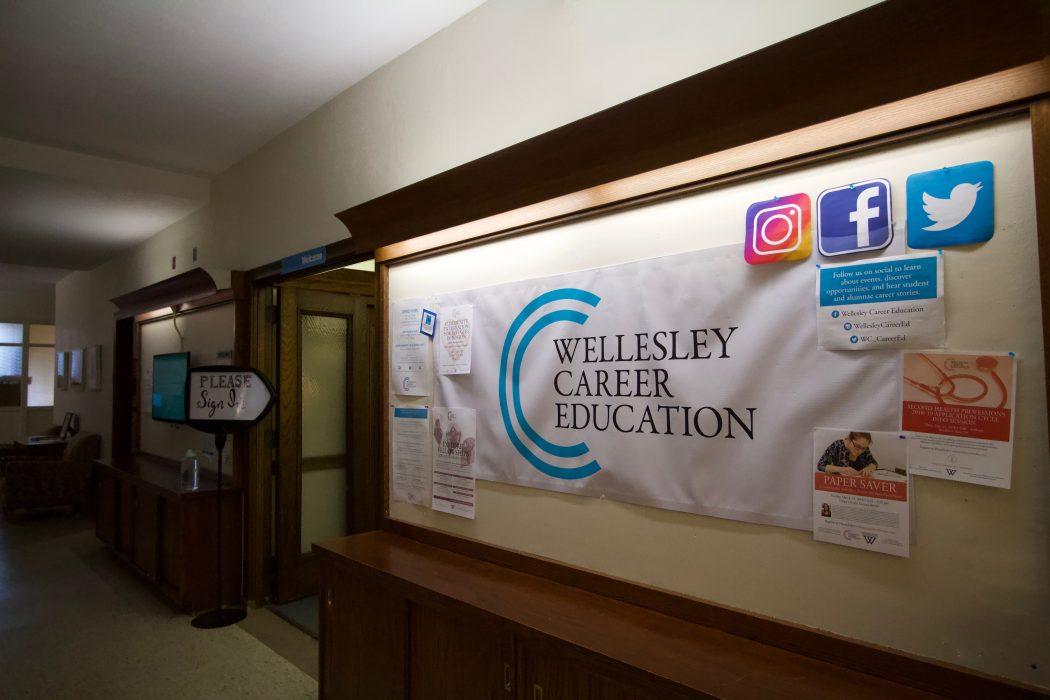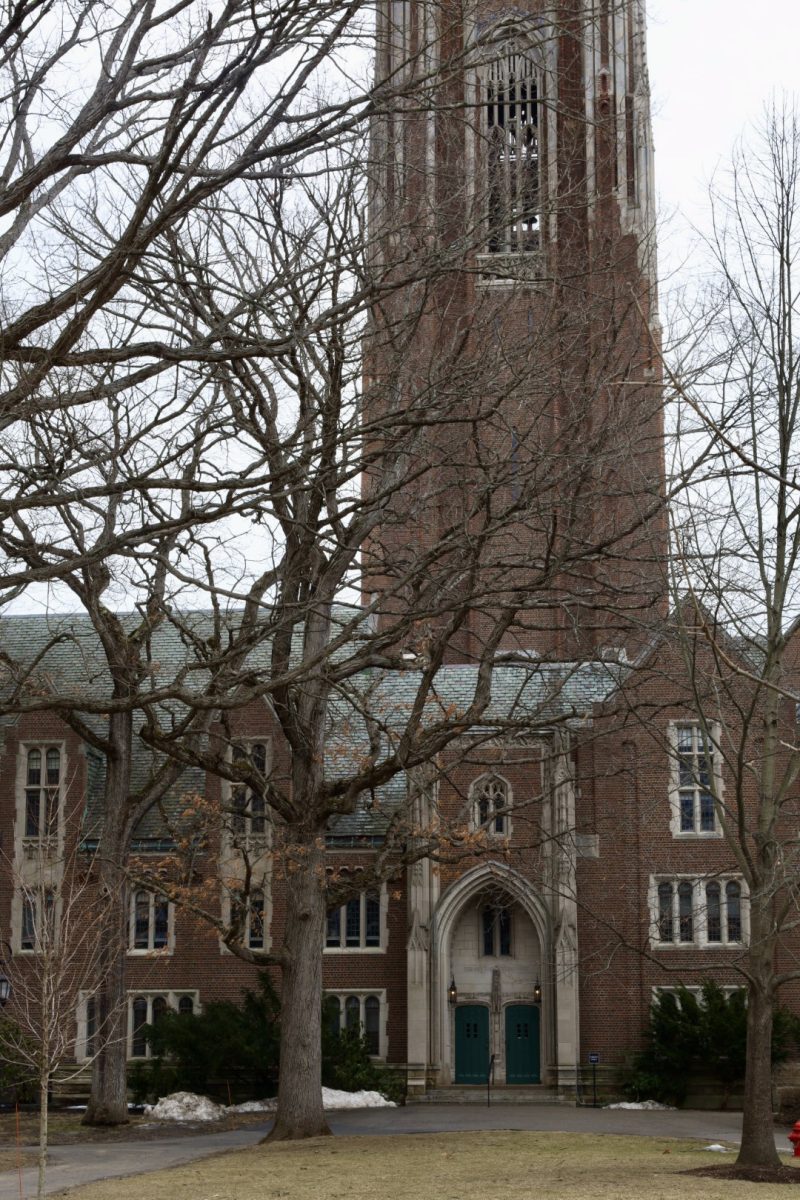Yesterday, Career Education notified students who were interested in the Nov. 13 Central Intelligence Agency (CIA) information and recruitment session that it had been cancelled, citing “potential event disruption” as the cause.
Over the weekend, a group of concerned students composed and circulated an open community letter opposing the upcoming Career Education event, “Learning about Opportunities with the CIA.”
The letter, which was addressed directly to Career Education leadership, states, “We are troubled by Career Education’s decision to allow and allocate Wellesley space and resources to an agency which consistently engages in human rights violations, torture of prisoners and destabilization of democratically elected governments around the world.”
It includes a link to a petition which, as of this writing, includes 235 signatures. The majority of signatures, 164, were students. Another 60 were alumnae, while staff, faculty and other signatories made up the remaining 11 signatures.
The authors state that the CIA’s record is “fundamentally incompatible with Wellesley’s mission to educate students ‘who will make a difference in the world.’” They cite a number of affairs that the CIA “had a direct hand in,” including the destabilization of democratically elected governments around the world, sponsorship of authoritarian leaders and atrocities against civilians. They conclude the letter with a list of demands and a request for a written response by Tuesday, Nov. 12 at noon. At the time of this publishing, Career Education has not provided a public statement.
At approximately 1:30 p.m. Tuesday, Jennifer Pollard and Liz Mandeville, co-interim executive directors of Career Education, emailed students who had RSVPed to the event that the CIA had chosen to not move forward with the information session, after being notified by Career Education of a “potential event disruption,” according to their message.
“The CIA … is working with Career Education to ensure students interested in the agency are still able to engage with the recruiters freely through different means,” the statement read. The rest of the campus community was not notified by Career Education.
The student organizers who circulated the petition reacted to the news in a statement. “While we are pleased that the CIA will not have a physical space to hold their recruitment…we are committed to ensuring Career Education does not continue to allow the CIA and similar organizations to recruit on campus.” They also noted that Career Education has not released a policy regarding which employers are allowed to recruit on campus and called on them to develop such a policy in a manner “based on Wellesley’s mission and values.”
Career Education is still willing to help students who wish to do so connect with the CIA on an individual basis. “It is important to have the voices of strong women within all industries. Career Education has notified the CIA regarding the potential disruption and is working to identify recruitment means that will allow students interested in exploring the CIA to do so freely,” Pollard and Mandeville’s statement said. Their statement reflects both the views of Career Education and of Wellesley College. Pollard and Mandeville confirmed that the CIA initiated the event.
Founded in 1947, the CIA is a U.S. foreign intelligence service which gathers and analyzes national security information through human intelligence. It is the only agency authorized to carry out covert action on behalf of the American president. The agency’s director is Gina Haspel, who was appointed by President Donald Trump in 2018 and is the first woman to serve in the role.
The CIA has recruited from college campuses since its inception in 1947. The Nov. 13 event is not the first time that the CIA has recruited at Wellesley College. According to a declassified memo from August 1978, Wellesley College was identified as a women’s college that had been visited within the last three years by CIA recruiters. Additionally, in the 1990s, the agency placed paid advertisements in this paper.
Just as the CIA has been recruiting since the mid-1900s, so have students been protesting. In 1967, 30 student demonstrators at the University of Colorado Boulder faced disciplinary action for protesting the presence of the CIA. In Sept. 1988, students at the University of New Mexico forced recruiters to cancel an event.
Other protests have occurred at Grinnell College in 1966, Ohio State University in 1979, University of Michigan in 1981 and 1984, University of Wisconsin-Madison in 1983 and 1985 and more. A number of these protests have resulted in citizens’ arrests and police involvement.
National Public Radio (NPR) reported that in recent years, CIA recruiting has become much more visible and “widely welcomed” at universities. “Back then, it was commonplace for students to protest the presence of a CIA recruiter on campus,” said Daniel Golden, a journalist and author who has written a book on CIA recruiting of American students. These days, “recruiters are pretty universally accepted and students sign up in droves for these sessions,” he said in an interview.
According to the RSVP list on Handshake, 29 students were slated to attend. The majority of attendees registered after the petition letter was circulated and a couple students noted that they became aware of the event from the opposition letter. Emely Larios ’21 is one such student.
“I am interested to learn more about job opportunities in the CIA, plus am sure that my major might fit into some of their job opportunities,” they said. “I just want to explore more options out there for me.”
Rose G. ’22 also heard about the event from the petition email.
“The CIA is mysterious, and who doesn’t love a little mystique. I want to know what the CIA has to offer, because I’m not sure about the scope of what they do,” she explained.
Community response to the event and the opposition letter has been mixed.
“I found the petition to be antithetical to Wellesley’s inquisitive spirit and completely lacking in knowledge of how Career Education actually functions as an organization,” Rose G. ’22 said.
Kylie Hall ’23 has been interested in a CIA analyst position as a post-graduate option for some time. Though she expressed her understanding of the opposition letter’s writers’ perspective, she maintains that national security is paramount and that it is more effective to change the agency from the inside.
“Instead of shunning any and all interaction with the organization, I think that we should try to improve it, or at least support those who want to do so,” Hall said. “I think we should be flooding the CIA with Wellesley students and alumnae; my bet is that would make it a much better place.”
The community members who have signed the petition have articulated that the CIA’s historical record is cause for concern. English professor Lawrence Rosenwald explained, “Students are right to raise questions about whether the CIA should be welcomed to Wellesley’s campus to recruit. I’m not sure the CIA should be recruiting here, not sure, that is, that we should be normalizing it, treating it as one more organization among many.”
Angel P. ’20, who presented at Senate this Monday on behalf of the student organizers behind the opposition letter, stated that students should carefully consider the impact of their choices when applying to work somewhere like the CIA. “I know many Wellesley College students desire to serve their community and country, but I would urge them to educate themselves on the bloody history of the CIA, domestically and abroad, before joining an organization that regards human-life with such callous disregard.”
Rachel K. ’20, a petition signee, questions the College’s decision-making.
“Why should Wellesley provide resources to an organization whose actions go directly against Wellesley’s stated values of ‘empowerment and social change,’ ‘integrity,’ and ‘diversity, equity and inclusion?’ Why should Wellesley provide resources to an organization that has harmed fellow Wellesley students and alums?” they asked.
News Editors Renée Remsburg ’23 and Sophie Hurwitz ’21 contributed reporting.






